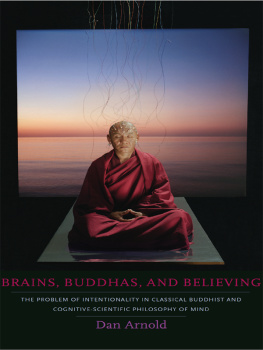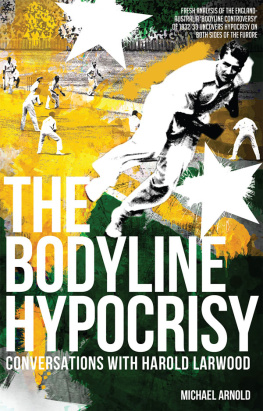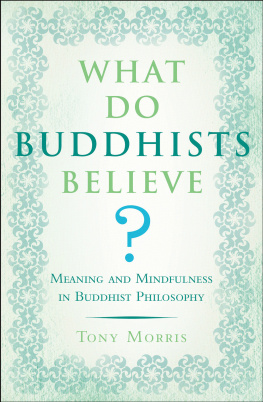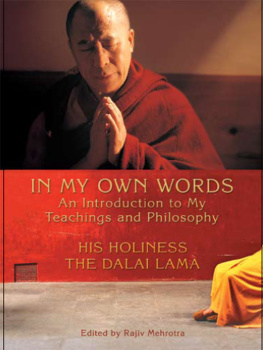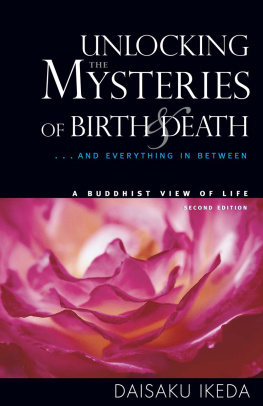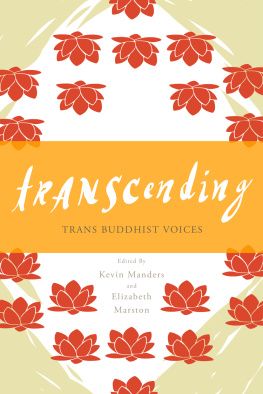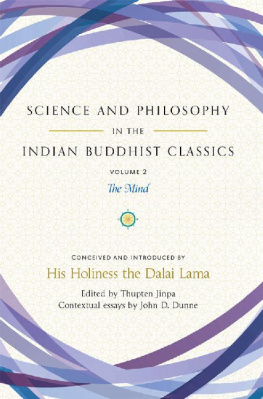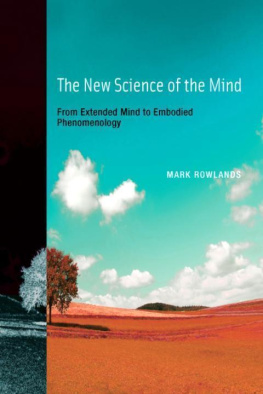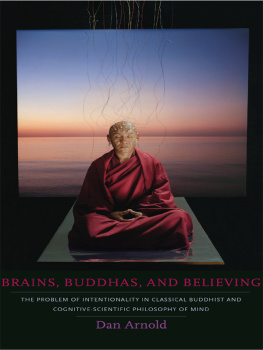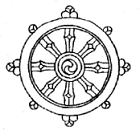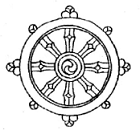Brains, Buddhas, and Believing
Dan Arnold
Brains, Buddhas, and Believing
THE PROBLEM OF INTENTIONALITY
IN CLASSICAL BUDDHIST AND COGNITIVE
SCIENTIFIC PHILOSOPHY OF MIND
Columbia University Press
New York
COLUMBIA UNIVERSITY PRESS
Publishers Since 1893
New York Chichester, West Sussex
cup.columbia.edu
Copyright 2012 Columbia University Press
All rights reserved
E-ISBN 978-0-231-51821-5
Library of Congress Cataloging-in-Publication Data
Arnold, Daniel Anderson, 1965
Brains, Buddhas, and believing : the problem of intentionality in classical Buddhist and cognitive-scientific philosophy of mind / Dan Arnold.
p. cm.
Includes bibliographical references and index.
ISBN 978-0-231-14546-6 (cloth : alk. paper)ISBN 978-0-231-51821-5 (electronic)
1. Intentionality (Philosophy) 2. Buddhist philosophy. 3. Philosophy of mind.
4. Philosophy, Comparative. I. Title.
B105.I56A76 012
128.2dc22 2011015742
A Columbia University Press E-book.
CUP would be pleased to hear about your reading experience with this e-book at .
References to Internet Web sites (URLs) were accurate at the time of writing. Neither the author nor Columbia University Press is responsible for URLs that may have expired or changed since the manuscript was prepared.
kuto v ntana vastu vayam utprekitu kam /
vcovinysavaicitryamtram atra vicryatm //
(How could we discern anything new? Only the variety in the composition should be considered here.)
Jayanta Bhaa
I dont know about you guys, but when friends in other lines of work ask me what philosophers are into these days, and I tell them that these days philosophers are into claiming that really, deep downin a first-class conceptual system, you know?its not true that cat means cat they laugh at me. I do find that embarrassing.
Jerry Fodor
The moment we try to give a precise analysis of anything we cannot doubt, we find we can doubt whether we have given the right analysis.
Charles Hartshorne
Contents
F LEDGLING THOUGHTS in the direction of this book were sketched in my book Buddhists, Brahmins, and Belief; following Vincent Descombes, I there (2005, 3848) briefly characterized some philosophical problems for Dharmakrtis projects in terms of intentionality, in the philosophically technical sense of that word. The present book grew out of that initial attempt at understanding Dharmakrti in terms suggested by a concept central both in European phenomenological and Anglo-American analytic philosophy of mind. Particularly as understood and deployed in the works of philosophers such as Wilfrid Sellars and John McDowell, intentionality affords critical purchase on the complex and elusive thought of one of the most influential thinkers in the history of Indian philosophycritical purchase that makes sense, moreover, of some of the problems and issues that underlie the burgeoning literature on Buddhism vis--vis cognitive-scientific research.
Given the vastness of the philosophical literature pertaining to intentionality (not to mention the particular difficulties that attend attempts at understanding first-millennium Indian philosophers like Dharmakrti), any project such as the one attempted here is necessarily selective; the particular angles Ive developed surely reflect the philosophical conversations Ive been part of (here at the University of Chicago and further afield) and all that Ive learned therein from my students, colleagues, and critics. While my perhaps eccentric development of this books various ideas should not, of course, be held against any of them, there are some among these many interlocutors whom its my pleasure to thank for their special roles in furthering my work.
to include the writing of a response paper that really was quite excessively long; Jay Garfield has generously given feedback on more of my work than probably anyone.) Ive also greatly benefited from conversations with and suggestions from Akeel Bilgrami, Jason Bridges, Yigal Bronner, Arindam Chakrabarti, Christian Coseru, Whitney Cox, Ryan Coyne, Mario DAmato, Wendy Doniger, Georges Dreyfus, John Dunne, Jonathan Gold, Richard Hayes, Kevin Hector, Matthew Kapstein, Sara McClintock, Larry McCrea, Rick Nance, Parimal Patil, Graham Priest, Rajam Raghunathan, Rick Rosengarten, Mark Siderits, John Taber, Alex Watson, and Christian Wedemeyer.
Thanks, too, to Tupac Cruz, Eric Huntington, and Sonam Kachru, for the various kinds of help they provided in my researching the stuff considered here (which in Erics case includes preparation of the index). At a point where the manuscript of this book was excessively sprawling and diffuse, Spencer Dews skillful editorial interventions were invaluable. That editorial work, as well as a generous subvention for the books publication, were provided by the Divinity School, and I thank then-Dean Rick Rosengarten for this form of assistance (as well as for all the other kinds hes provided over the years). Closer to completion, Rob Fellmans editorial work was also much appreciated.
A good deal of the material included in this book has appeared in print before. Much of chapter 4 was published in the Journal of Indian Philosophy (see Arnold 2006), as was much of chapter 5 (Arnold 2010a); material for chapter 5 also appeared in Sophia (Arnold 2008). All of the material here reused from those publications is used with kind permission from Springer Science+Business Media. Much of chapter 1 first appeared in Philosophy Compass (as Dharmakrtis Dualism: Critical Reflections on a Buddhist Proof of Rebirth, in vol. 3/5 [2008]: 10791096); thanks to John Wiley and Sons for permission to reuse that material here.
Thanks, in particular, to Wendy Lochner and Christine Mortlock, with whom its been a real pleasure to work (and to share musical suggestions) for many years now.
Most deserving of thanks are Deborah, Benjamin, and Katy; while they are, of all the people named here, surely the least likely to care much about the arguments of this book, their care for more important things has been for me the most sustaining support of all. If theres any merit in this book, Id like to dedicate it to their flourishing and (why not?) to the flourishing of all sentient beings.
The New York Times columnist David Brooks has ventured, notwithstanding the current popularity of books like Richard Dawkinss The God Delusion, that a new wave of cognitive-scientific research on religion may lead not to rampant atheism but to what you might call neural Buddhism. Brookss point was that the real challenge for theists was likely to come not so much from the avowedly atheistic works of Dawkins and the like as from scientists whose beliefs overlap a bit with Buddhism. He seems to have meant that cognitive-scientific research supports such characteristically Buddhist beliefs as that (Brooks says) the self is not a fixed entity but a dynamic process of relationships, and he worries that such research thus encourages new movements that emphasize self-transcendence but put little stock in divine law or revelation.

